Members of Tane-no-chikara teach the Sustainable Development Goals (SDGs),
which seeks to create an organization through "agriculture" and realize a sustainable society.
During outdoor training in a desolate location, participants will learn how to employ the metaphors of "nature " and agriculture to represent a diversified, co-creating society while living in a typical environment
Recurrent Education for Learning and Re-examining from Nature
『Experiential SDGs Training』
This program, which takes place outdoors in Awajishima farmlands, aims to give participants experience with the SDGs. Tanenochikara is an organization in charge of the program. That uses farming and other activities to create a circular and sustainable society.
About 6,000 students participate in the popular program among educational institutions and schools each year.
This training program aims to offer fresh perspectives and thought-provoking questions that transcend the mundane and can be applied to the workplace of the future.
The Sustainable Development Goals (SDGs) encompass more than just academic knowledge.
They also involve a sense of practical awareness and obligation.
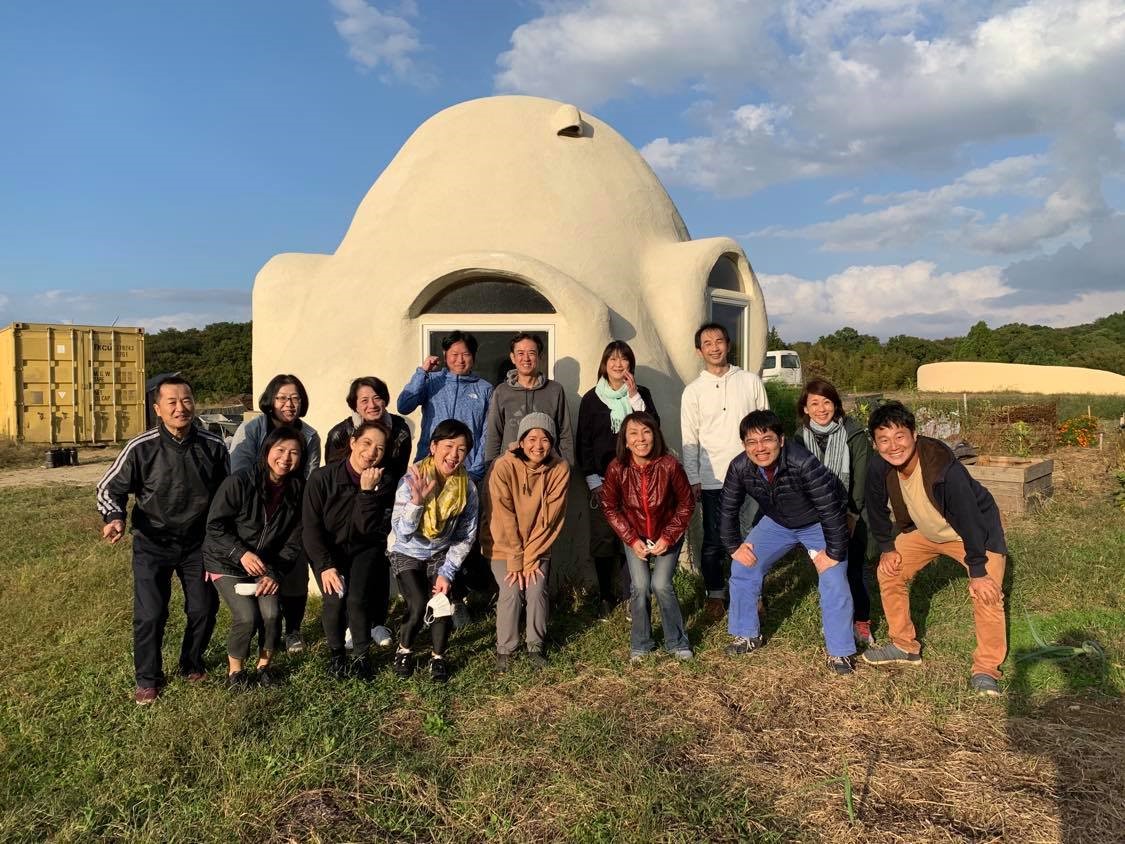
Features of Experiential SDGs Training
The education of those who can apply the SDGs and challenge their core principles.
Understanding the Sustainable Development Goals is the main purpose of this training program. Also, develop a set of guidelines for corporate activities which the United Nations has defined, developing human resources that will work on these SDGs and creating partners who will envision the future.
Creating a flexible and strong organization through training.
New business opportunities will be created by integrating the company's management strategy with the SDGs, giving awareness of the process of understanding the SDGs and comprehension of the vision beyond the corporate philosophy of the company, and practice of team-building and co-creation by utilizing the characteristics of everyone using the metaphor of "agriculture" performed through self-cultivation.
Market competitiveness and corporate value have increased.
as well as new business opportunities are generated by incorporating the SDGs into the management strategy of the organization.
We will assist you in building a strong and adaptable organization by challenging the fundamental ideas of the SDGs, integrating them into your operations, and highlighting individual and group strengths.
Establishing a company and engaging in "agriculture" to create a sustainable society.
Outdoor agricultural education to increase awareness through practical application.
We think there are lessons to be learned from nature, particularly since the SDGs seek to establish a society centered on co-creation, diversity, and circulation.
Growing vegetables naturally, without the use of pesticides or fertilizers, and in harmony with fungi, plants, and insects dispel stereotypes and cultivate a deep sense of unity with the natural world.
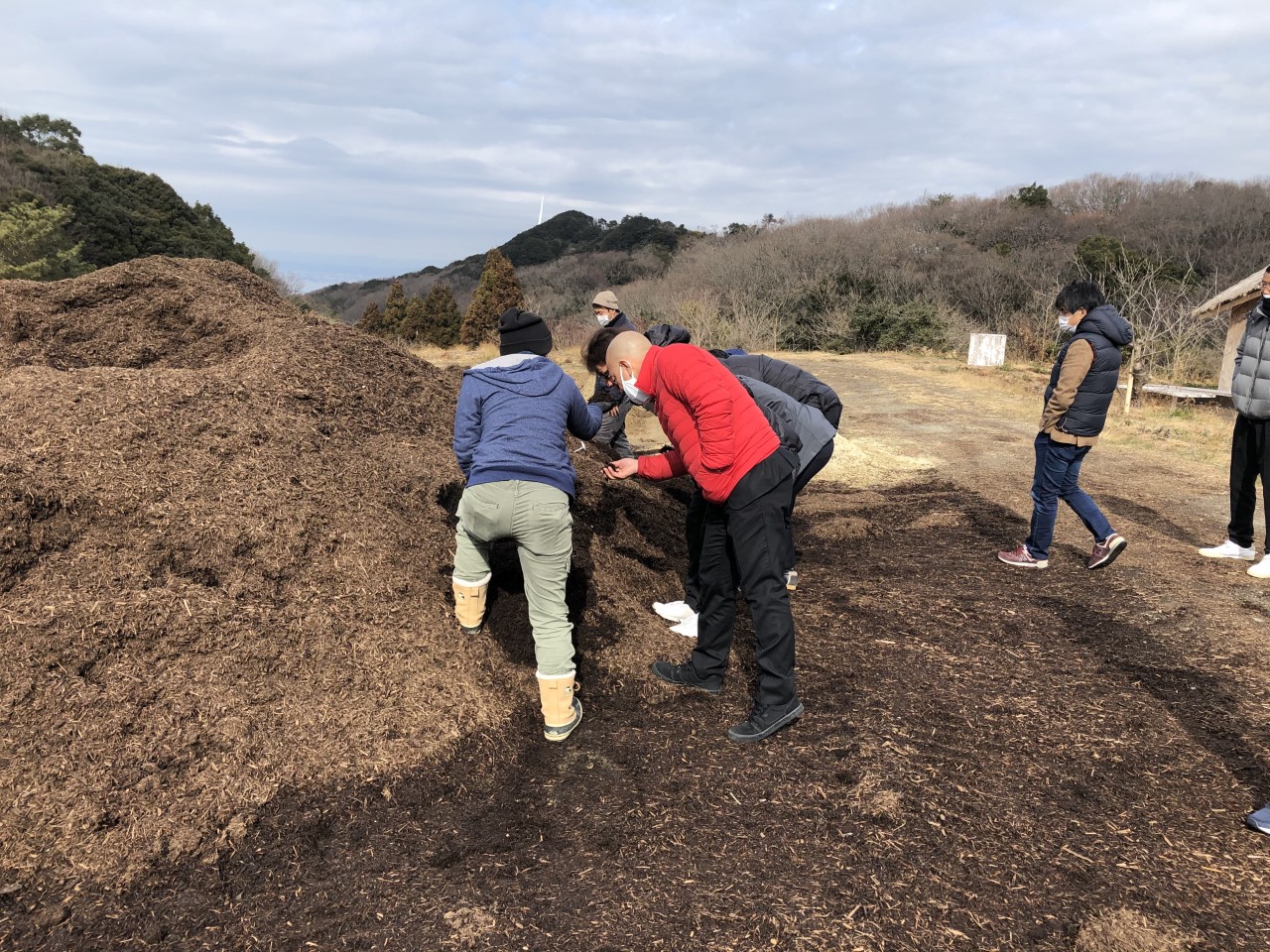
Lecturers
Daisuke Kaneko
Daisuke Kaneko was born in 1989 in Fujisawa City, Kanagawa Prefecture. He received his education at Waseda University. He worked as a recruitment consultant at Pasona Inc. after receiving his degree from college to create a long-lasting, fulfilling workplace that would allow tomorrow's kids to lead happy lives, after leading a team to establish recruits in industries with state-of-the-art information technology,
He became a member of the corporate planning team.
He relocated to Awaji Island, Hyogo Prefecture, to redefine the metropolitan "norms" that have unintentionally set themselves in people's heads, creating a "sustainable" society where people may raise their children in harmony and launching a company centered around all of these objectives.
TEDxTalks
「Thinking with Duality: A society that celebrates Itoma」 | Daisuke Kaneko |
Plan Introduction
Short plan
This two-hour training session consists of a brief talk and a field trip.
It is available as a meal-based observation training plan.
This program is perfect for one-day SDG experiences or corporate study tours.
On the field tour, you will touch the weeds and dirt to observe them and you will visit the field's places of interest while narrating how the design creates diversity and cycles.
1. Earth Bag House
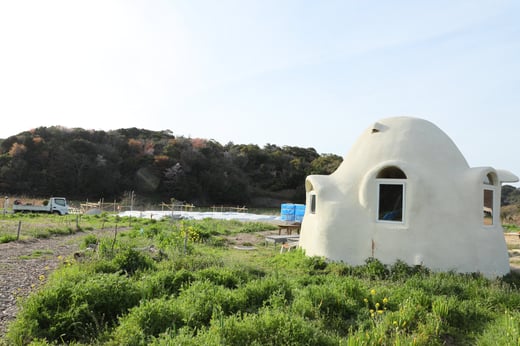
The "Earth Bag House" is a building made of soil that is built by stacking sandbags to promote awareness of the importance of soil as the base for all food, shelter, and clothing.
Because "soil," a readily available resource, is used as a building material, It has little effect on the environment and removes the need to worry about obtaining materials.
It can also be used as temporary housing in an emergency and offers excellent protection against earthquakes and fires.
2. Composting
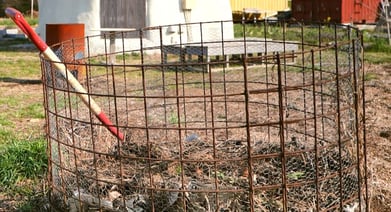
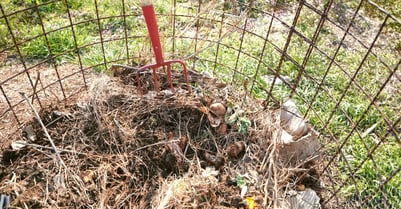
Household and restaurant food waste needs more energy to be burned than other waste types.
But when combined with field compost, it becomes an important source of nutrients for creating rich soil.
Basic Plan
This is a three-session basic plan that will be conducted both online and on Awaji Island. After checking in and attending an orientation seminar, participants will take part in field trips, immersive work, group projects, and debates on Awaji Island. An output session will be held to wrap up the program.
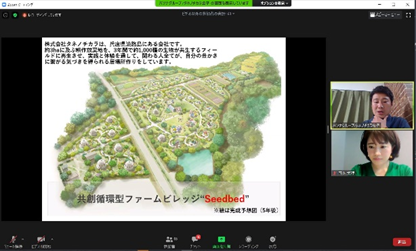
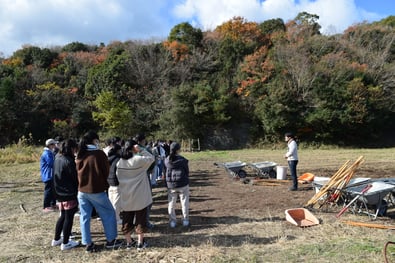
Original plan
We will schedule based on your preferences for theme, length, content, etc.
examples:" A practical course teaching sustainable living through nature." A practical workshop that teaches the fundamentals of the SDGs through agriculture and food.
Through experiencing a world far apart from the digital world, the event will offer the chance to learn about the realization of a sustainable society and discover new values.
We will plan according to your request in terms of theme, duration, contents, etc.
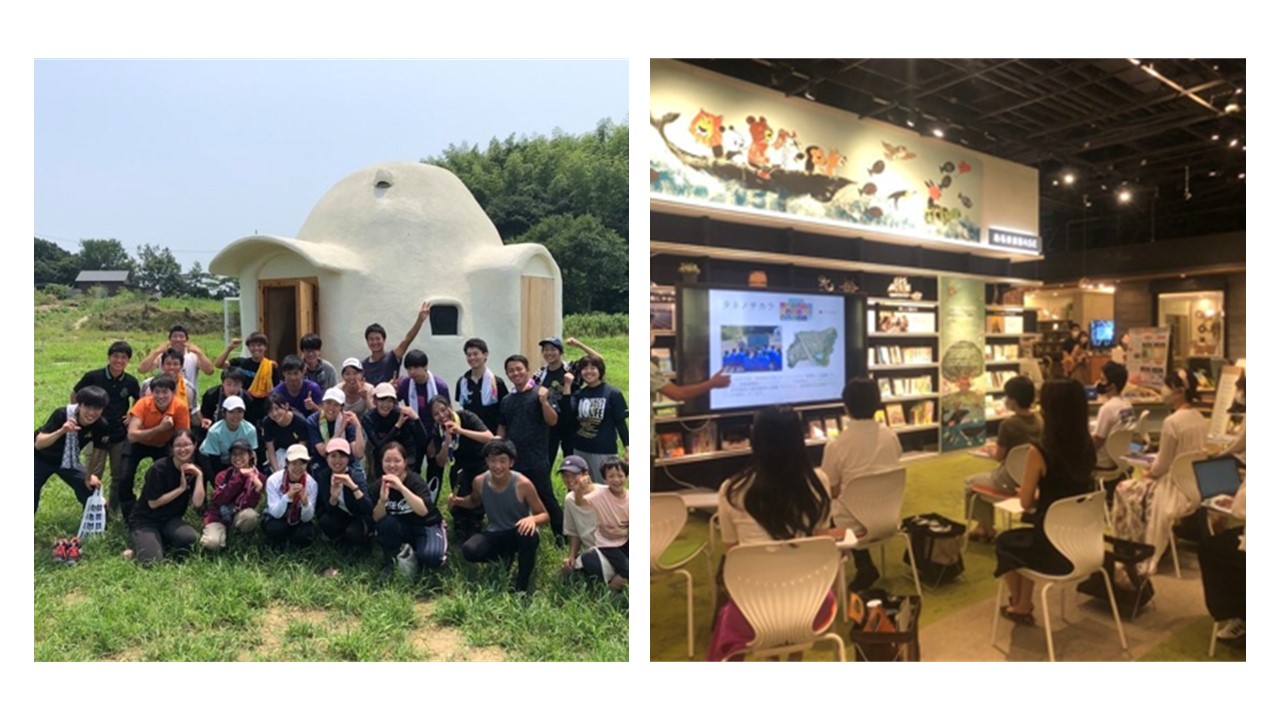
The program outline for the practical SDGs Training
Time: up to two hours (depending on the plan)
Maximum number of participants: 180
It costs 3,500 yen (tax included) per person.
Content: Training materials can be adjusted upon request.
Suggest lunches and programs related to these topics.
Popular programs provided by Tane-no-chikara include the experience time walk training.
We suggest to take lunch with this program.
Downloading Documents, Making Information Request, and Making Inquiries
Easy-to-read program summaries are included in proposal materials that can be downloaded in data format!
Please get in touch with us if you have any inquiries regarding the program, want to verify if a spot is available, or want to make a provisional reservation.
If you prefer to contact us by phone, please call
Pasona Group, Inc.
Tourism Sales Project Group, Business Development Department
Phone number: 050-3684-4874
*Open hours: 9:30–18:00 on weekdays
Participants enjoyed lunch and shopping at the Awaji Island West Coast facilities
before the experiential SDGs training.
Numerous highly recommended locations can be found along Awaji Island's west coast.
offering groups dining options, adventure, shopping, and other activities.
You are free to enjoy the entire day, and we will work with you to create a customized schedule.
For further information, please get in touch with us.
Group menus at restaurants and group rates for experience are also available.





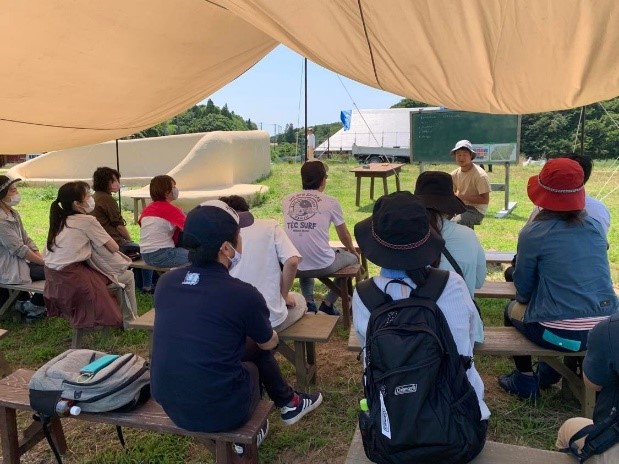

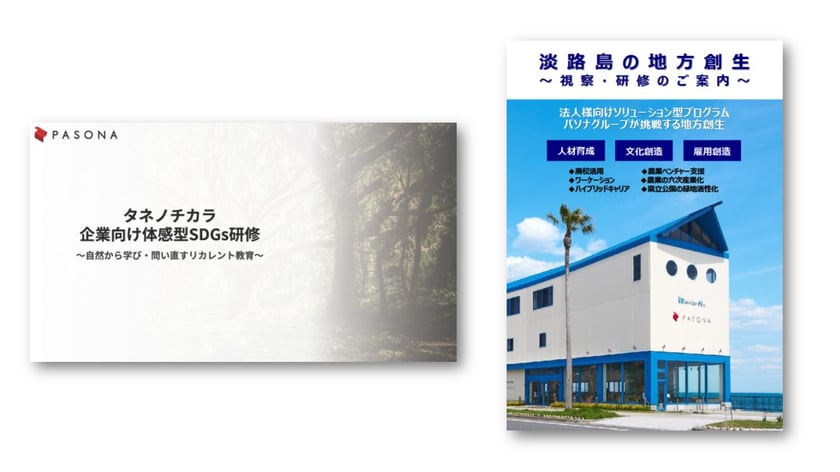
%E2%98%85%20(1).webp)
.webp)
%20(1)%20(2).webp)